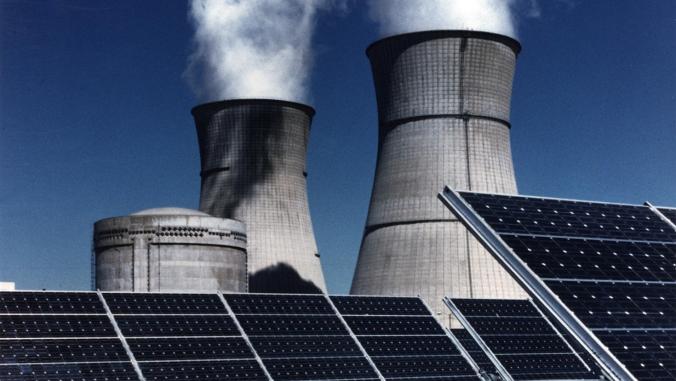Fossil fuel power generation has already peaked in at least half of the world's economies, including the U.K., the EU and the U.S., leaving the planet "on the cusp of a new era of fossil fuel decline in the global power sector."
That is the conclusion of a fresh analysis from think tank Ember, which shows how 107 electricity markets worldwide are already at least five years past a peak in power generation from coal, gas and oil.
Ember explained that due to potential short term fluctuations and economic changes, it considered fossil fuel power generation to have passed a peak in a country if at least five years have passed without any significant change occurred in fossil fuel generation's downward trend. It found that markets representing 38 percent of global electricity demand were at least five years past their fossil fuel peak.
The Oct. 20 report — which looked at national data from 215 countries stretching back to 2000 — also revealed that economies representing more than 50 percent of overall global power demand look to be at least a year past a peak in generation from fossil fuels, suggesting that a sustained downward trend could be underway.
Not many people realize just how many countries' power sectors are already well into a phase of fossil decline.
It found emissions from electricity generation in the 107 economies that are five years past their fossil fuel power peak, which are largely situated in North America, Europe and Oceania, have fallen by almost a fifth in the last decade, as renewables generation has soared.
Ember said 78 of these economies had displaced fossil fuels in their power sectors through clean electricity growth from wind, solar and other renewables sources over the past two decades.
Moreover, 45 countries had managed to engineer a peak in fossil fuel generation, despite an increase in overall electricity generation, in most cases driven by rising electricity demand, it added.
Dave Jones, Ember's global insights lead, said he thought the shift away from fossil fuel power generation was happening far faster than many investors and policymakers realised, as he argued the global energy system was at a tipping point.
"Not many people realize just how many countries' power sectors are already well into a phase of fossil decline," he said. "For many countries, this was done simultaneously to rising electricity demand."
The latest findings follow Ember research earlier this year indicating that global power sector emissions are plateauing, having risen just 0.2 percent during the first half of 2023 even as energy demand continued to grow.
Clean power sources such as wind and solar need to provide around 40 percent of global electricity by 2030.
The think tank said it was "too close to call" whether power sector emissions would fall this year for the first time in history outside of an economic crisis, partly due to lower than average hydropower generation. But it reiterated that it expected the milestone to occur in 2024 at the latest.
Today's research calculates that fossil fuel power generation is down by 30 percent on its peak across the EU, by 20 percent in Oceania, and by 15 percent in North America, while it also looks to have plateaued across much of Latin America, the Caribbean and Africa.
The only regions worldwide yet to see a peak in power generation from fossil fuels are Asia and the Middle East.
In order to meet the goals laid out in the Paris Agreement, experts have calculated clean power sources such as wind and solar need to provide around 40 percent of global electricity by 2030, underscoring the scale and pace of change still required to avert catastrophic climate change.
At present, renewables account for more than 30 percent of global power generation, according to the International Energy Agency (IEA).
Jones predicted many more countries would reach a peak in fossil fuel generation in the coming years, as the roll out of renewables projects continues to accelerate. "Such is the success of solar and wind, the peak is close even in many key emerging economies," he said. "We are on the cusp of a new era of fossil decline in the global power sector."






